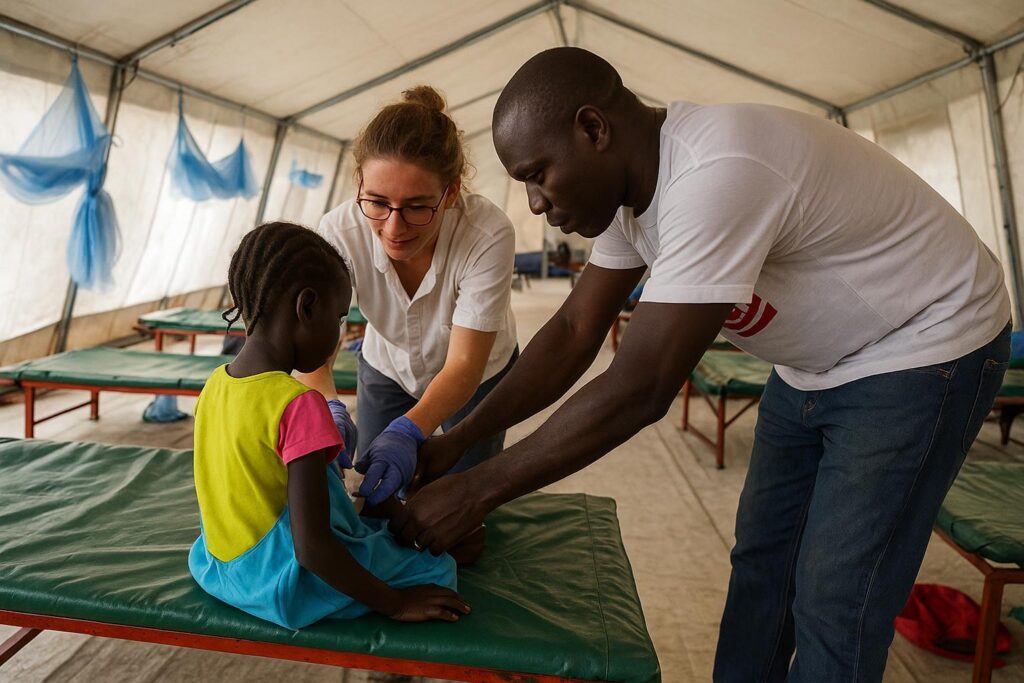A Preventable Threat Resurfaces
On 28 October 2024 authorities confirmed cholera in South Sudan. Twelve months later the bacteria has killed more than 1,500 people and infected over 93,000, despite the illness being easily treatable with timely rehydration and sanitation.
Observers ask why containment remains elusive. Medical teams, including Médecins Sans Frontières, say the answer lies beyond microbes, in chronic underfunding, displacement and violence that keep clean water and clinics out of reach.
Funding Gaps Undermine Response
Public health spending sits below two percent of the national budget, leaving hospitals reliant on donors. Recent withdrawals, such as USAID’s, forced closures and stripped water-sanitation projects in Bentiu, weakening the country’s capacity to detect cases early.
MSF opened treatment units from Renk to Juba, caring for more than 35,000 patients. Yet staff say their beds fill faster than they can be disinfected, proof that emergency medicine alone cannot substitute for continuous public services.
Displacement Compounds the Challenge
Since conflict erupted in Sudan in April 2023, over one million people crossed the northern border, swelling South Sudan’s population by roughly ten percent. Transit camps around Renk now shelter triple their intended numbers, stretching latrines, boreholes and vaccination teams.
Mobile families often miss oral cholera doses and basic antenatal checks, leaving pregnant women especially vulnerable to hepatitis E, another water-borne threat rising alongside cholera.
Violence Disrupts Care
Armed attacks repeatedly halt treatment. In March 2025 fighting in Ulang forced more than thirty cholera patients to flee an MSF ward; looting later closed the hospital permanently, echoing eight incidents that suspended services in Old Fangak and other towns.
“Cholera is not a mystery,” stresses Ilse De Boer, MSF’s deputy medical coordinator. “But each time violence pushes us out, the bacteria regains ground and communities pay the price.”
Shared Responsibility Ahead
Health workers insist the path forward is clear: stable funding for water, sanitation and routine clinics, a wider rollout of oral vaccines, and respect for humanitarian access across frontlines.
Until these pillars align, experts warn that the current emergency may fade only to return with the next rainy season, prolonging a cycle that the region can ill afford.


